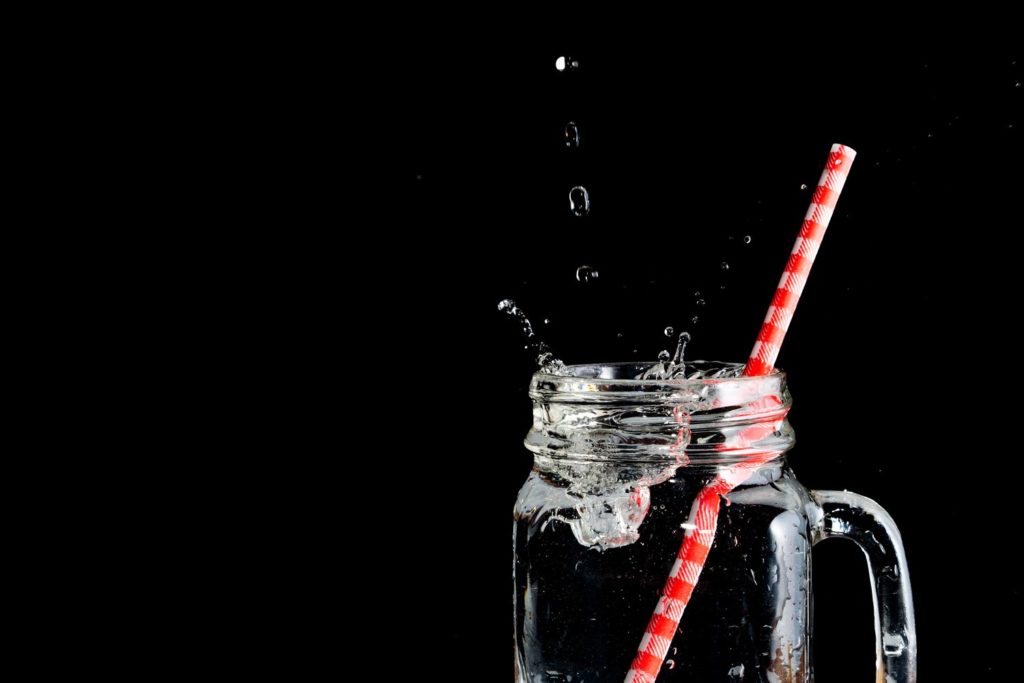![]() Consuming electrolytes can help with migraines, chronic fatigue, aches, joint pain, and more.
Consuming electrolytes can help with migraines, chronic fatigue, aches, joint pain, and more.
When you hear the doctor tell you to stay hydrated, they may tell you more than “just drink water” or “a bottle of Gatorade here and there is good enough.” But going for a Gatorade is not necessarily good healthcare. Have you seen the sugar content?! If you don’t drink much water as it is, DEFINITELY drink more water. But there’s more you can do!
Think about it, when you become too dehydrated and need to go to the emergency room, they don’t hook you up to a bag of tap water by IV. They hook you up to a bag of saline in purified water. For various reasons, electrolytes might also be added. For me, during a severe migraine attack that sends me to the emergency room, I usually get orders for a bag of the stuff. Sometimes it’s all I need if the migraine was purely triggered by dehydration.
Who wants to pay an outrageous hospital bill when you could have been keeping hydrated with both servings of water and electrolytes to possibly avoid a dehydration trigger?!
What are electrolytes?
Electrolytes are certain nutrients (or chemicals) present in your body that have many important functions — from regulating your heartbeat to allowing your muscles to contract so you can move. Electrolytes are found within bodily fluids, including urine, blood and sweat.
An electrolyte imbalance can be caused by a number of different factors, including short-term illnesses, medications, dehydration and underlying chronic disorders.
Even if you don’t have migraine, staying hydrated is essential for any disease management – including chronic conditions such as fatigue, aches, joint pain, and more.
An Important Note: Beware of Sweet Electrolyte Drinks
Overly sweet electrolyte drinks, like Gatorade and Propel, are not healthy for those of us needing to stay away from consuming a lot of sugar. As a Pre-Diabetic not on any medications, I do my best to stay away from these kinds of electrolyte drinks. There are much healthier alternatives that I use with great results. They range from homemade to store bought and have helped me out in a bind many times. Here’s a list of my favorites:
- Nuun Effervescent Tabs – These dissolvable tablets go with me everywhere. I have one with caffeine and the other with vitamins. My daughter, who also has migraine, has both as well and keeps a bottle of the caffeine type at school to take with an Ibuprofen as directed by her doctor. It’s better than using a sugary, caffeinated soda and she’s getting electrolytes at the same time! Two birds with one stone. I also don’t drink these daily. I drink them before I do anything more than light walking or house work. I use them if I’m doing something that is known to trigger symptoms in order to try to stay ahead of dehydration.
- Pedialyte (Plain Flavor) – I keep a sealed bottle of Pedialyte, the plain and clear kind, in my pantry at all times. For me, it’s almost like drinking a bottle of IV electrolytes and has kept me out of the ER many times. I don’t drink Pedialyte on a daily basis, I only use this solution in a dehydration emergency. Again, I don’t use it to maintain hydration.
- Vegetable Broth – Weird, right? We all know vegetables are imperative to a healthy body. Vegetable broths can contain up to all five types of electrolytes, including: calcium, magnesium, sodium, phosphorus, and potassium. That’s more types of electrolytes than you will find in drinks like Gatorade. Hmmm, maybe the old wives’ tale about soup for a cold was true! Doctors always tell me to keep my kids hydrated when they come down with the flu.
 BUT! Don’t Over-Do-It!
BUT! Don’t Over-Do-It!
There are downsides to drinking too many electrolytes on a regular basis, like an irregular heartbeat. Before you begin to drink electrolytes on a regular basis, you’ll want to make sure you check with your healthcare provider. Just like anything else besides water, you’ll want to drink in moderation. You don’t need much to get what you need!
Keeping hydrated also depends on your activity level. The more you do physically, the more you need to watch your water intake. Dehydration is not our friend, especially with a chronic illness.
In conclusion:
Supplementing with electrolytes can help if it’s something you and your healthcare provider agree to. Also note, every doctor is different, and all have differing opinions. Only you know if supplementing with electrolytes makes you feel better. Just be sure to be mindful of any concerning symptoms that may start after you begin supplementing water with electrolytes. Hydration wouldn’t be hydration without water. Drinking electrolytes is not meant to replace water! It’s a supplementation to water. So how much water should you drink? It depends on who you ask. There are SO MANY differing opinions and it makes me dizzy deciding who is right. So, to be safe, definitely ask your healthcare provider.
Achy Smile is a blog written by Erica Nicole Carrasco of Midland, Texas, now living in Fayetteville, North Carolina. She helps her husband, Stephen, raise their two teens, Marissa and Noah, through a life with hemiplegic migraine and comorbid diseases. Their daughter, who also lives with migraine disease, is a full-time student learning how to thrive with Erica at her side. In late January 2018, Erica shared the stage with prominent women in the health industry and talked about her life with migraine at BlogHer Health, an annual blogger conference for women in the health industry. She is a Speak Your Migraine Spokesperson and a Partner of the American Migraine Foundation.
www.achysmile.com | Facebook | Instagram | Twitter | Pinterest



